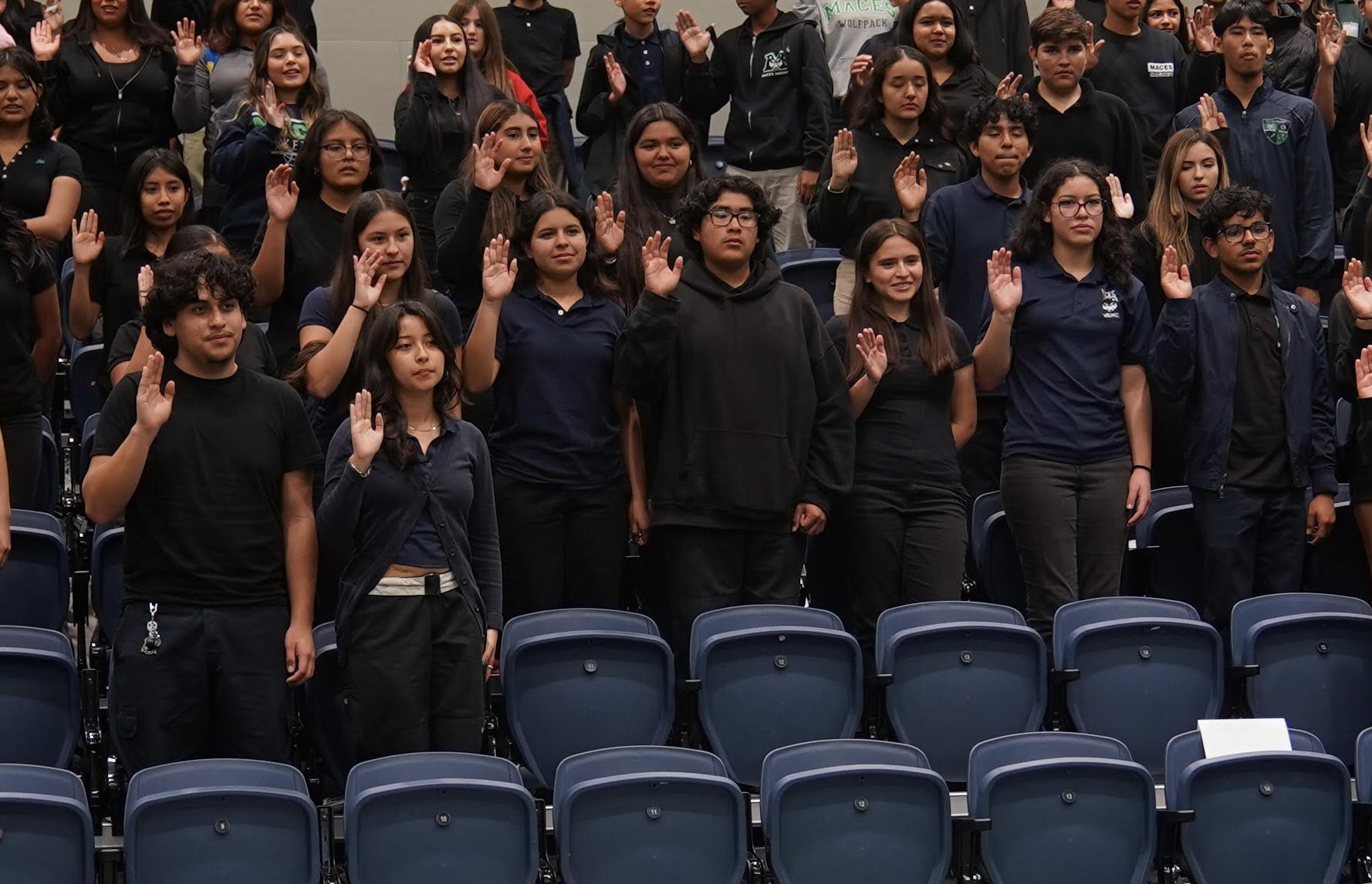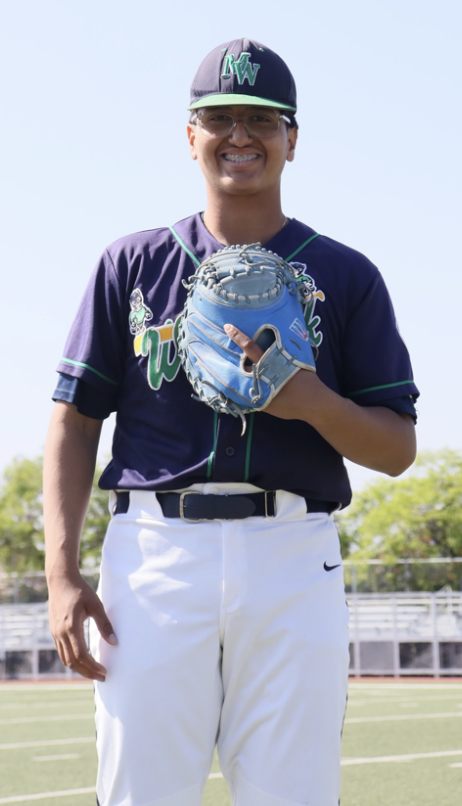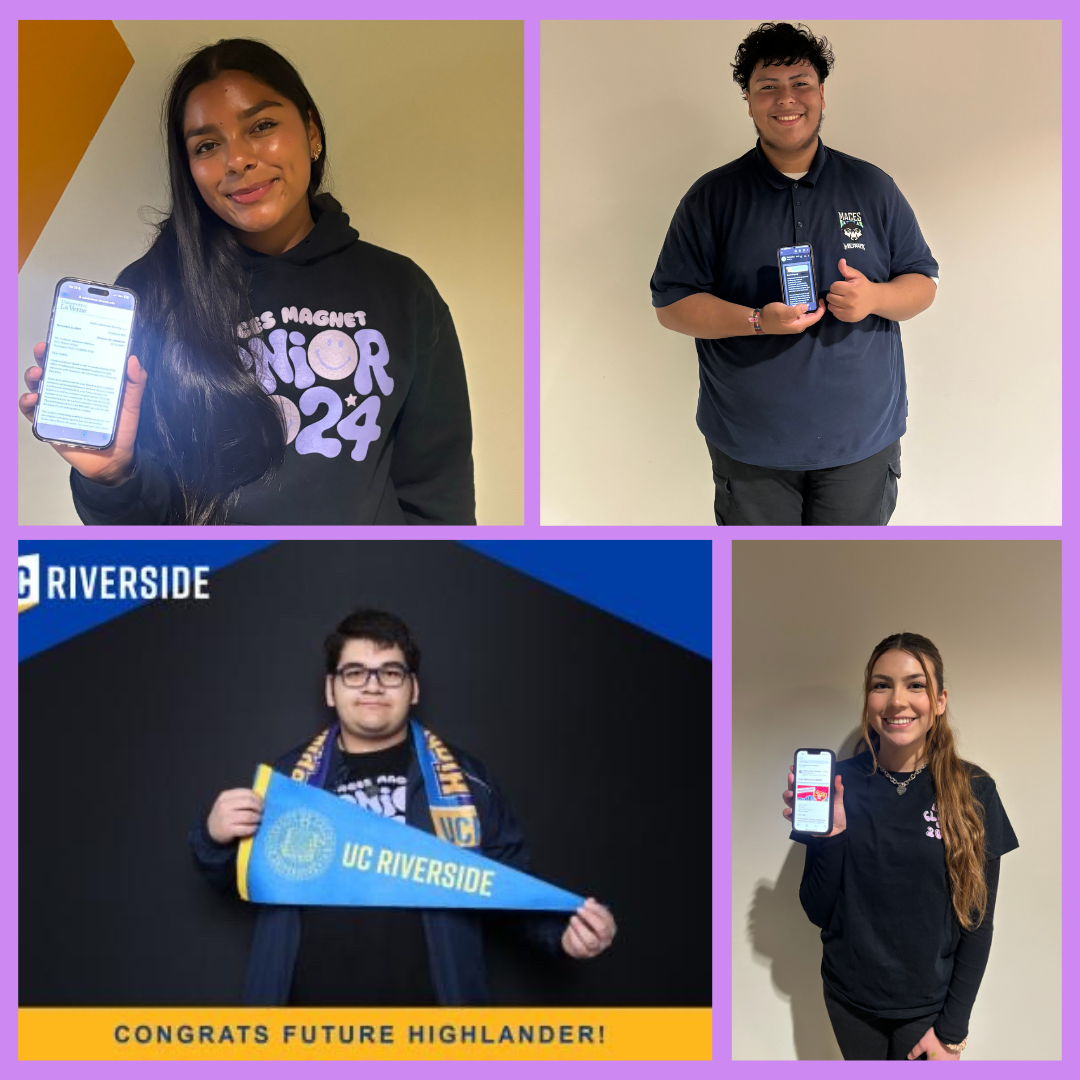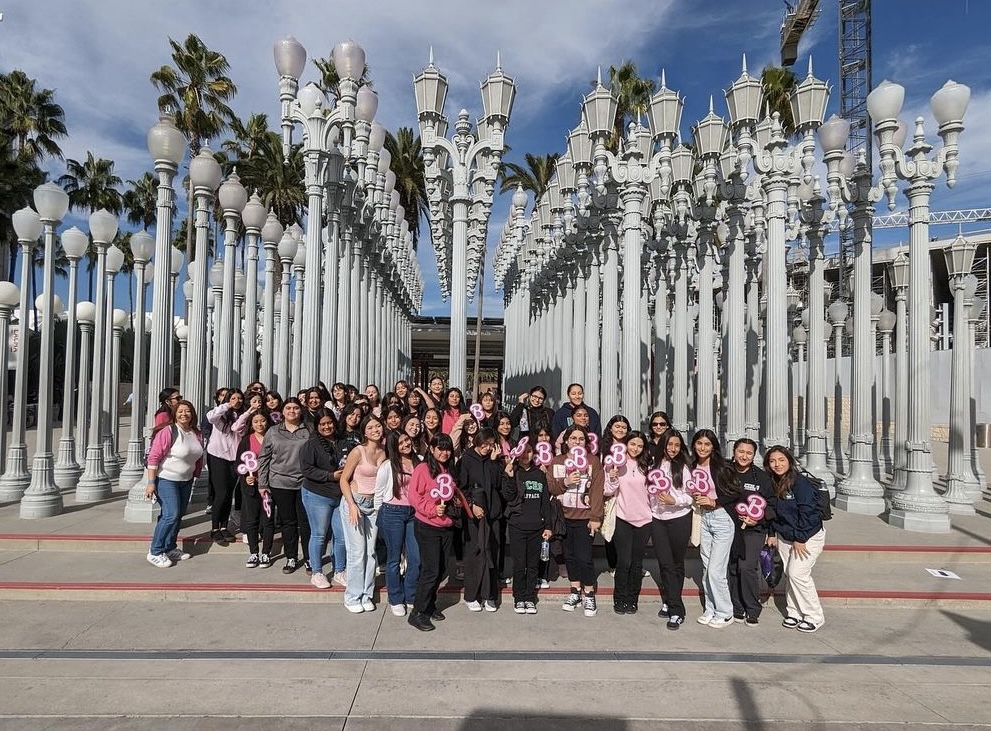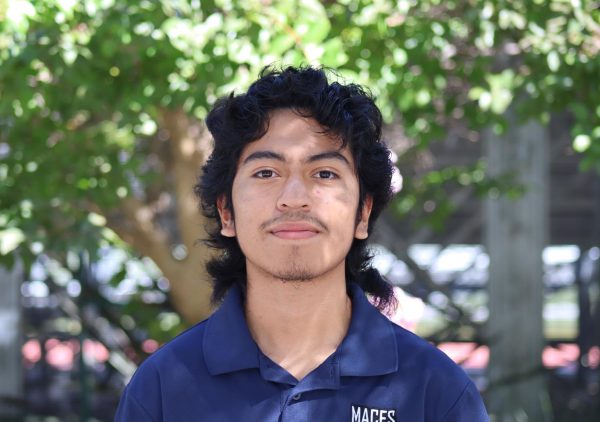On Thursday, October 24, 2024, MACES was honored with the “Civic Learning Award” for its commitment to engaging students in civic learning. Recognized community leaders have gathered today to address the question, “What has your club done to promote civic engagement?” The goal is to learn from their initiatives and, hopefully, replicate these efforts nationwide.
Aliah Cruz, President of ASB:
“Well, we have had many [community initiatives] by having open houses and health fairs [in the city of Maywood] to better the community [for its residents], and also [by organizing] social events for people inside and outside of MACES to create that spirit [of camaraderie], like in football games, both in and out.”
Emely, President of CSHS:
“CSHS is very active in the school-wide and citywide communities. We host activities year-round for younger students, working within the middle school sector of MACES but also extending our efforts [to] neighboring middle or elementary schools.
We’re all about getting people involved and excited about computer science and the tech world, and we do all [that we can] to achieve that. There is an especially important [acknowledgment] to make in CSHS for its student members. They are the backbone of the club, or in some [computer-related] metaphor, they are the CPU; they do the thinking, planning, processing, and working so that all our activities [and events] may run smoothly.
CSHS is highly student-led, with our extremely helpful and knowledgeable advisor still taking a mostly hands-off approach [to running] the club. The board has the say in executive decisions, and the members, with the guidance of the advisor and board, are nonetheless expected to work independently [within] their respective committees.
We believe in the power that the students themselves have to work alongside each other to brainstorm and plan our events. They come up with the ideas, and the board and advisor exist as support to bring their ideas to life. In every meeting, they are strengthening their skills as team members, but also as leaders. Our role in civic engagement at MACES and in the surrounding community can be defined by a simple statement: no one can truly engage the youth quite like other youth.”
Leilani Hernandez, President of MNHS:
“Our club has promoted tutoring hours and community service; [members need] 10 hours each to maintain their membership. We urge our members to participate in the [MACES community] and engage in helping tutor students in the STEM field [since we are a math national honors society].
Furthermore, our club promotes community involvement through hosting events such as our induction ceremony [where we can all come together to celebrate] the achievements and hard work we have done, or Pie Day [where we sell pies and raise awareness about math’s importance].
As a club, we will always continue to [encourage] community and civic engagement and find opportunities where our members can do so.”
Marlon Perdomo, NHS MSG:
“Our National Honor Society and its services have contributed greatly to civic engagement here at [MACES], specifically through our tutoring program. Our members, each maintaining a minimum of a 3.5 GPA and embodying NHS pillars, are responsible for tutoring at least 5 hours per semester.
This free tutoring in all subjects, from English to Math to Debate, ensures that all [MACES] students receive one-on-one help. This system serves as more than just academic aid; it actively involves members in encouraging an inclusive, supportive learning environment.
Through these sessions year-round, NHS members develop leadership skills as they guide our peers. Our educational support reflects civic engagement as it ensures all students have access to academic resources, contributing to our community. Each member’s dedication to tutoring showcases our service in action, exemplifying a commitment to uplifting one another—[a true example of civic responsibility.]”
Emily Duenas, President of Red Cross:
“Our club has been actively promoting civic engagement among our community by involving individuals in humanitarian efforts [including] disaster prep, emergency response, and recovery.”
Jocelyn Piceno, President of Roots & Shoots:
“A few years back, Roots & Shoots helped Starbucks [support] the labor unions, and we made posters to support the labor unions.
As an [environmentally focused] group, we prioritize helping our community through planting trees, and also by helping local organizations [distribute] food, clothes, and information [to] our community, especially those who need help.”
Lizbeth Martinez, Captain of Debate:
“The debate team at MACES promotes civic learning by encouraging students to practice important social, political, and ethical issues.
Through policy debates, debaters [learn and research] current events that affect the US and other countries. Since they have to debate both sides (affirmative and negative), they also get to understand multiple perspectives, which helps them understand their civic responsibilities.
Since most of our debaters are seniors, we teach them how to stay informed, especially [about] voting and how to weigh arguments. Debating also helps students practice public speaking and collaboration, which are also super helpful for being informed citizens.
I remember I was super shy when [I first joined] the team, but debate really helped me get out of my comfort zone. I’ve delivered speeches on food insecurity, talked about climate change, nuclear war, and more.”
Mathew Cortez, President of Interact:
“In the entirety of our club, we have been one of the many beacons of service.
A few of the events we’ve had [include] participating in beach cleanups, park cleanups, and even community cleanups [where we picked up trash] in Bell in former years, Thanksgiving turkey/canned food drives, as well as wrapping Christmas gifts for children and volunteering [at] marathons to pass out [water] and help participants.”
Sarah Cabrales, President of Girls Who Code:
“At Girls Who Code, we promote civic engagement by empowering female and non-binary students to pursue and explore computer science, along with learning how to create a welcoming community for all and to always assist and support others in our community, whether it be related to computer science or a social aspect.”

